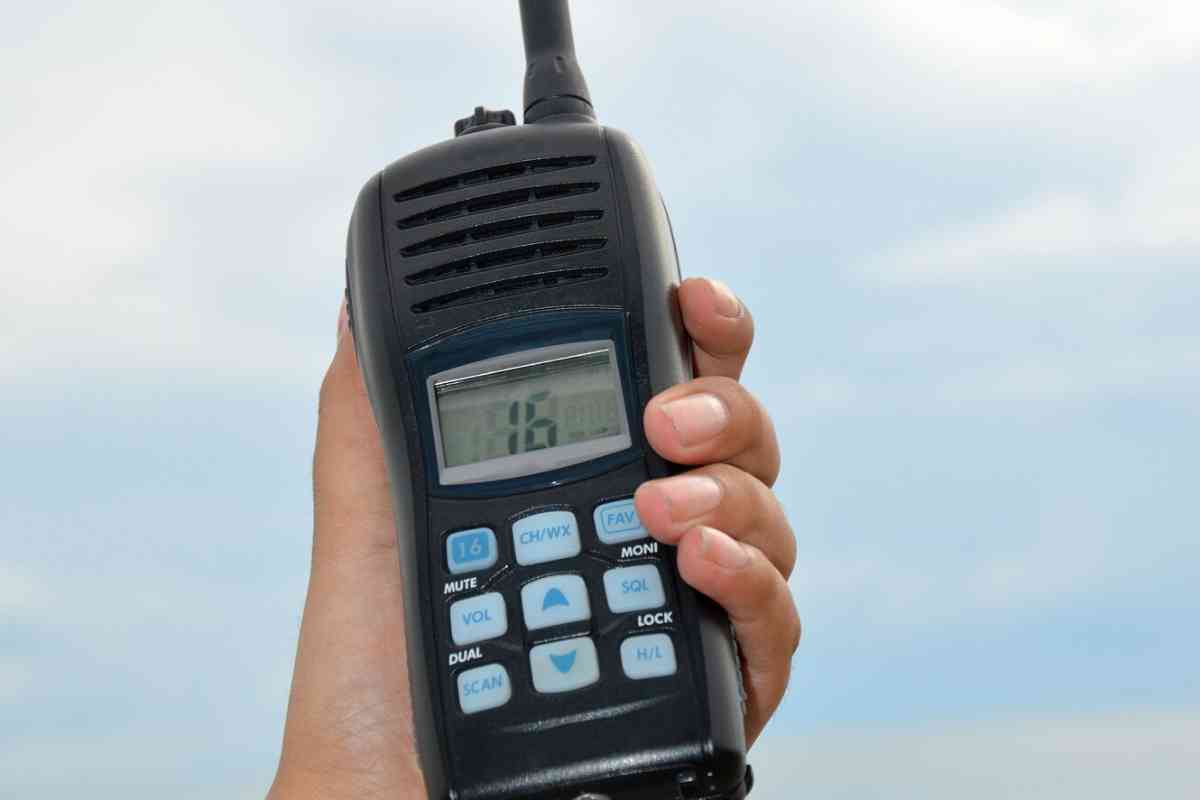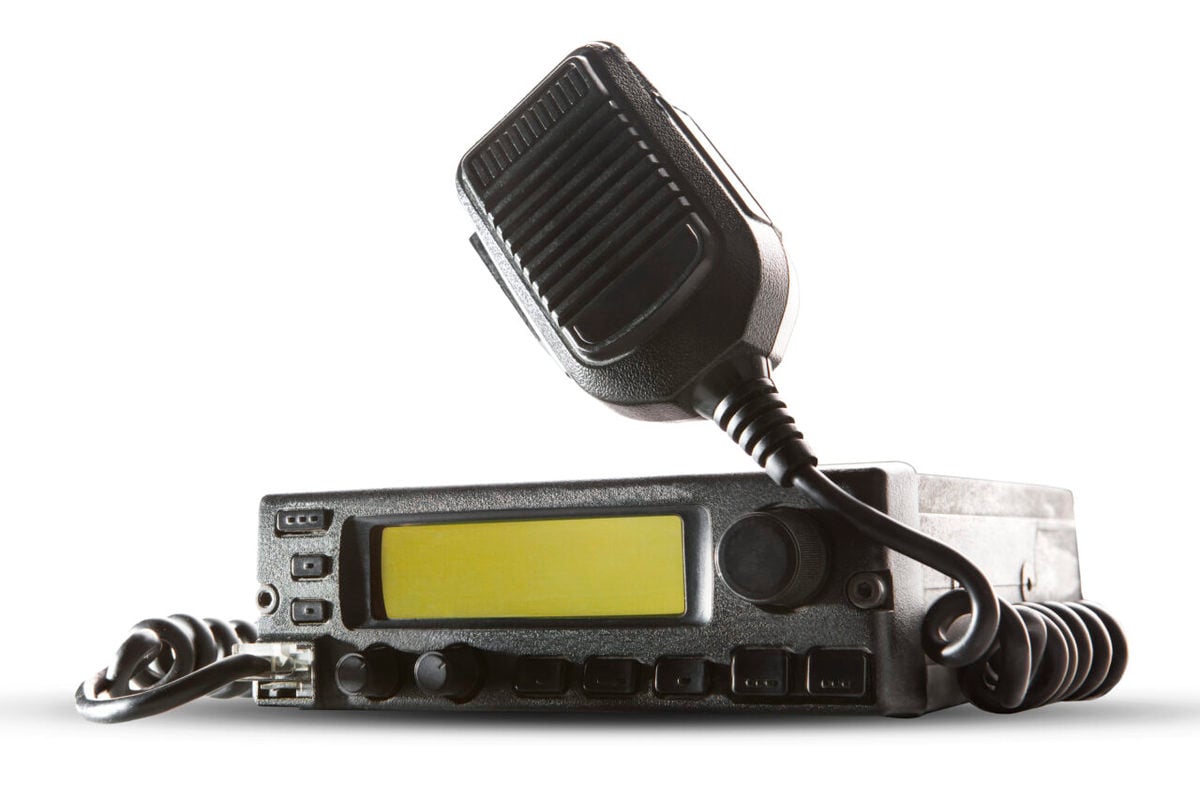Are Marine Radios (VHF) and CB Radios the Same?
When looking into uses for radios for professional or personal use, marine and CB radios are often mentioned together. These two radios share similarities in the fact that they are both radios and that they can be used for somewhat similar purposes. Overall, however, marine and CB radios are very different.
Table of Contents
- Are Marine Radios and CB Radios the Same?
- The Differences Between Marine Radios and CB Radios
- When to Carry a Marine Radio
- When to Carry a CB Radio
- Licensing for Marine Radios
- Licensing for CB Radios
- Marine Radio Frequencies and Channels
- CB Radio Frequencies and Channels
- Communication for Road Trips
Are Marine Radios and CB Radios the Same?
Marine and CB radios are not the same and are used for two similar yet different purposes. CB radios are often used during large emergencies, such as natural disasters, and for traffic concerns. Marine radios (VHF) are used for boating purposes and are typically required on all boats before leaving land.
Both radios serve similar purposes in the fact that they can be used to contact emergency personnel in the case of an emergency, but otherwise, marine and CB radios are not the same. They use different signals entirely.
Continue reading to discover the other differences between marine and CB radios and which will serve you best for your particular purposes.
The Differences Between Marine Radios and CB Radios
Radios are a necessity for large outings, especially on outdoor adventures. Choosing the right type of radio is vital to ensure that you are keeping yourself and your companions safe when enjoying an outdoor excursion.
Marine Radios
Marine radios are used for what one would expect: boating. Marine radios can also be called VHF radios and are the main form of communication for boats and their occupants when out on the water.
Marine radios are primarily used for a distress signal, weather broadcasts, and navigation purposes. Listed below are the main features of marine radios.
- Large range (use antenna)
- Frequencies specific to the marine environment
- Large groups of listeners on the marine radio channels
- Vast pricing options
Handheld Marine radios are ideal for sea-faring folks because they are not attached to the boat’s electrical system, meaning that the radio can still work even if a storm has knocked out the power.
Marine radios are also effective because of the use of channels. A specific channel, 16, is reserved for distress and emergency calls, making sure that the channel is free of other chatter during all hours of the day and night.

When choosing a marine radio be sure to know which features you feel are most vital for your specific purposes. This will make choosing a marine radio quicker and simpler.
CB Radios
CB radios allow for anyone to use the frequencies provided, giving the general public access to a radio system. Citizen band (CB) radios have 40 channels, with channel nine allocated as the emergency communication channel.
Highlights of CB radios are given below:
- A reliable range up to 5 miles
- Weather reporting from local weather channels
- Specific channels that report road closures, police stoppages, and other traffic concerns
- A squelch control feature, which allows the user to not have to listen to background static
- Easy and accessible use when cell phone service may be unavailable
CB radios are extremely popular among truckers, RV and motorhome campers, and even off-roaders and outdoor explorers. CB radios can be used in place of cell phones, which is perfect for people who often find themselves in places without service.
CB radios, much like marine radios, have specific frequencies on which certain calls can be made. For CB radios, channel 9 is for emergency calls, and channel 19 is reserved for truckers to report to other trucks on road conditions on highways and other traffic-related concerns.
There are a few setbacks when using a CB radio, especially on a boat. CB radios are not as popular as they once were and many boats no longer use them, which can make contacting someone through a CB radio difficult.
Background static and other noises can make it hard to hear and the Coast Guard doesn’t keep tabs on the emergency channel on a CB radio.
When to Carry a Marine Radio
A marine radio should be carried on all boats when in the water, even if it’s a small model. Marine radios are crucial for saving lives at sea and with water often being unpredictable, carrying a marine radio as a precaution is an excellent plan.
Besides emergencies, marine radios can be used for navigation purposes as well. One can never be too cautious regarding navigation, as even the most seasoned traveler can become lost.
A specific use channel is available on marine radios for navigational purposes. This channel is specifically used by larger boating vessels to announce their presence to other boats as well as bridges.
If simply boating for enjoyment purposes, a marine radio is important to carry on your boat for informational purposes. Specific channels can inform pleasure boaters of ongoing search and rescue operations, which is important information to know if heading out on the water.
When to Carry a CB Radio
CB radios are most frequently carried and used by truckers. CB radios are important for truckers as they are frequently on the road and need to obtain traffic information such as road closures, construction zones, and police stops.
Avid outdoorsmen and those who own RVs or motorhomes may also find a CB radio useful. Besides the obvious channel communications regarding traffic concerns, CB radios do allow for calls to be made in case of lost cell phone service.
This is a great back-up option for those who spend time outdoors in parks and other recreational areas that may not have excellent service.
Licensing for Marine Radios
A license is not required to operate a marine radio aboard a ship that is not required by law to carry a marine radio. This refers to recreation or pleasure boating.
There are exceptions to every rule, and this is true for marine radio operations as well. If you are operating a larger vessel and have employees that work on the boat, a Marine Radio Operator Permit is required.
To qualify for this license, you must be able to speak English, be a legal resident of the United States, and pass multiple exams.
Licensing for CB Radios
CB radios are intended for use by businesses and consumers. Therefore, no license is required to operate a CB radio.
There are few restrictions when using a CB radio. Age is not a factor and the only restrictions regarding CB radio usage are not permitted by a foreign government representative or a federal government agency.
You may also not use a CB radio if you have been ordered by the FCC to cease and desist usage.
Marine Radio Frequencies and Channels
Marine radios use FM channels and a very high frequency, which is where VHF marine radios come from. These have a frequency range from 156-174 MHz.
Most marine radios available today have capabilities of using up to twenty-five channels in the United States. Most channels will not be used, but make special note of channel 16, as that is the distress and safety channel.
Urgent broadcasts, such as weather and storm warnings, are also made on channel 16. This channel is reserved only for emergencies. If looking to for a means of instant communication with other boats, you must use a working channel besides channel 16.
The United States Coast Guard will be tuned in to channel 16 to listen for any distress calls made from a boat on the water. The Coast Guard does have its own channel to communicate with, which is channel 22.
This channel is where safety broadcasts are made after other boaters are informed on channel 16. Channel 22 is restricted for Coast Guard use only. Do not contact the Coast Guard for a radio check, as that is illegal.
CB Radio Frequencies and Channels
CB radios typically have use of about forty channels at about 27 MHz. CB radios are mostly found in a receiving mode, meaning that if you wish to send out a message, you must press the button on your radio, usually found on the side of the radio, to send out your message.

When using a CB radio, users must take turns talking. This is because only one person can transmit at a time, so even though radios in the same area may share a frequency channel, only one person can speak at once.
Communication for Road Trips
If choosing to commit to a road trip with a large group, looking into radio options is a smart decision. Cell phone service can be spotty, so having a back-up plan is an excellent idea.
When it comes to communication between multiple vehicles, a CB radio is the best choice. CB radios are easily obtainable and are easy to use. Simply pick a channel, make sure each radio being used is set to that particular channel, and commence the road trip!
Marine radios are primarily in use for boats and attempting to use them on a road-trip would prove to be unsuccessful. Unless your road-trip consists of getting in multiple boats and heading out on the open sea, marine vhf radios are not recommended for road-trip purposes.
